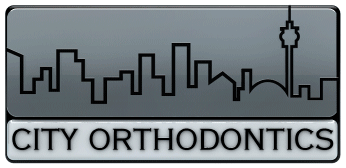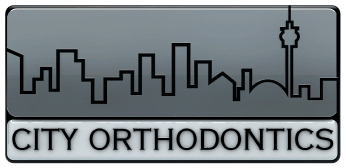If you or your child got braces or other orthodontic treatment this year, you might be asking: Can you claim orthodontics on taxes in Canada?
The short answer is yes.
You can claim many orthodontic expenses as a medical expense on your tax return.
However, the rules about what you can claim and how to do it can be tricky.
At City Orthodontics we prepared this article to help you understand how to claim orthodontic expenses on your Canadian tax return.
What is the Medical Expense Tax Credit?
The Medical Expense Tax Credit (METC) is a tax benefit for Canadian residents.
It helps reduce the financial strain of healthcare costs.
By claiming the METC on your income tax return, you can deduct specific medical expenses, which lowers your taxable income.
To use this credit, you must have paid for these expenses yourself. You can only claim costs that you covered out of pocket.
Any expenses reimbursed by insurance or a third party cannot be included in your claim.
Are Orthodontics Considered a Medical Expense?
Yes, the Canada Revenue Agency (CRA) allows you to claim orthodontic treatment as a medical expense if a doctor has prescribed it and if it aims to treat a medical issue.
You can claim treatments like:
– Braces
– Aligners
– Retainers
These treatments can be claimed as long as they are not just cosmetic improvements.
Is Invisalign tax deductible in Canada?
Yes, Invisalign is tax deductible in Canada.
It counts as a dental service, making it an eligible medical expense for a tax deduction.
You can claim the cost of Invisalign treatment on your income tax return and receive a tax credit.
What Qualifies as an Eligible Expense?
To claim a medical expense for orthodontic services, you must meet these conditions:
- The treatment needs to be prescribed by a licensed dentist or orthodontist.
- You need an invoice or statement that shows the treatment was necessary.
- You can only claim what you or your spouse/common-law partner actually paid.
- Any amount your insurance covered cannot be claimed.
Claiming Dental and Orthodontic Expenses in Canada
Line 33099
Use Line 33099 to claim eligible medical and dental expenses that you, your spouse, or your common-law partner paid for:
- Yourself
- Your spouse
- Your common-law partner
- Your children under 18 years old
You can claim the total of your medical expenses minus the lesser amount of:
- $2,479, or
- 3% of your net income (as shown on line 23600 of your tax return)
Line 33199
Use Line 33199 if you are claiming expenses for other people who depend on you financially. These dependents must be:
- Financially reliant on you or your spouse/common-law partner
- Residents of Canada at any time during the tax year
You can claim the total of allowable medical expenses minus the lesser amount of:
- $2,479, or
- 3% of the dependent’s net income (as shown on line 23600 of their tax return)
In Summary
So, can you claim orthodontics on taxes in Canada? Yes, you can!
Orthodontic treatments like braces and Invisalign can be expensive, but they may also help you save money on taxes.
If you have paid for necessary orthodontic care out of pocket, keep your receipts to include when you file your taxes.
At City Orthodontics, we help you maximize your insurance coverage and tax deductions.

